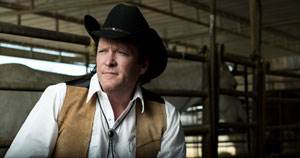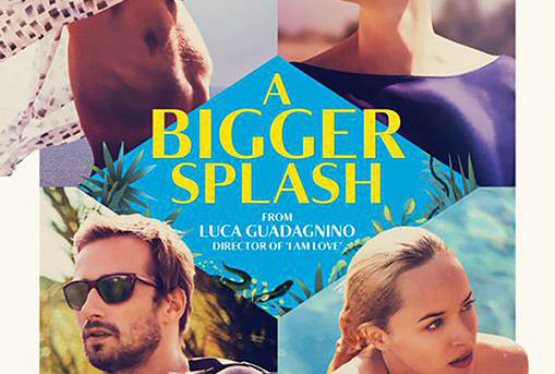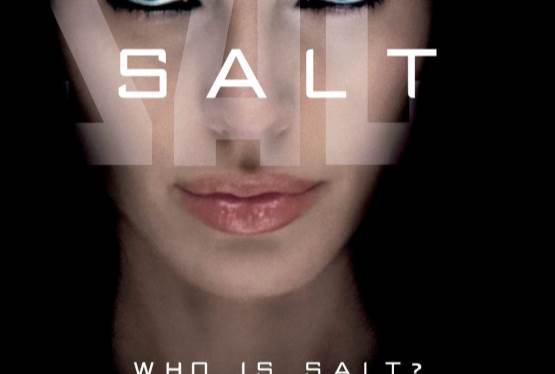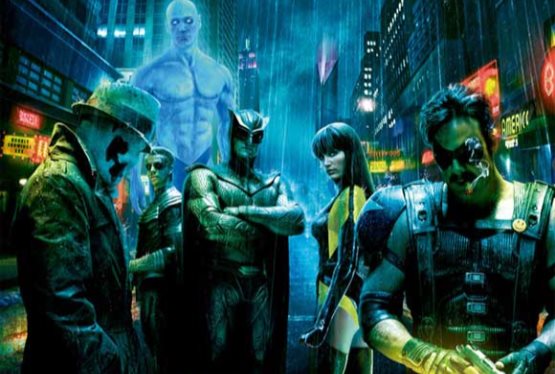
Michael Madsen: Yeah-that was a long time ago-I don't even remember what year that was. I met someone recently who even remembered my dialogue and that was like wow.
FlickDirect: What role were you?
Michael Madsen: I was the guy in the missile silo. The other person wouldn't launch the missile because he's afraid. I pointed a gun at him.
FlickDirect: What can you tell us about your part in The Hateful Eight reading?
Michael Madsen: Well it's a western. It's a bad-ass cowboy script and one of the most interesting things I've ever read. I play a cowpuncher. It's my chance to make a cowboy picture with Quentin-something I've always wanted to do. I think that if you've gotta make one with someone, he's the best guy I could think of.
Even when I first met him I thought that'd be a good genre for us to do together.
FlickDirect: I can believe that.
Michael Madsen: He wrote me a great role. I didn't manage to get into Django because there wasn't really a part for me and, you know, I've done a couple of westerns and this is the best-written one I've ever read.
Were you at the reading? It was really nice. Everyone got all dressed up. The girls got all dolled up. I read the write up in the LA Times and I don't think they quite captured the spirit of the event. Then again, I'm not a writer.
FlickDirect: Well, you are-you write poetry.
Michael Madsen: Laughs. I'm not a journalist.
FlickDirect: Is there anything you can tell us about The Hateful Eight that might draw in someone who isn't already a Tarantino fan? Or something that might excite someone who really is a fan?
Michael Madsen: Well, there's a lot of mysteries in there. For people who know his work there's a lot of references to his other films and references to a lot of characters from his other pictures that he's done. You might not realize it right off the bat-but if you listen close there are a lot of references.
I think everything he's done outside of Grindhouse has kind of been part of the same universe.
FlickDirect: And even Grindhouse was supposed to be the kind of movie the Reservoir Dogs would watch, right?
Michael Madsen: It's really fascinating. And Kurt was in Grindhouse so The Hateful Eight is kind of Mr. Blond meets Snake Plissken. That's an interesting standoff. Kurt said to me: "Let's face it, you know, one of us has to die."
I thought was a good way to approach it.
FlickDirect: When you're working with Quentin Tarantino, does he explain himself well? What's that like-what's it like with him behind the camera?
Michael Madsen: With him it's very collaborative. He puts the best person in the place of interpreting the character he's written and he has a preconceived idea of what that actor will do. He has a respect that comes with him so everyone kind of looks up to him as, kind of, the head bandit.
If you've gotta put it in that terminology he's got to run roughshod. He's not hard to understand because he's very verbal and very expressive. When he explains you often have pictures in your mind even before he starts speaking. I love him for that.
When we did Reservoir Dogs, I mean, we rehearsed that whole picture but I never rehearsed any of the torture scene. Until the day that we shot it and I had no idea what I was going to do. I never actually did it until I shot it.
For him to have that confidence in me that was really-that's not the normal way of doing it.
I pretty much knew how to play every other scene-but when it came to that one, I wasn't sure. In the script it said "Mr. Blond manically dances around the manacled cop." I wasn't sure what that looked like during rehearsal I didn't know what I was going to do-but I'm good when I'm backed into a corner.
When they point those machines at you in a film you have to do something. Quentin let me get away with the fact that I didn't know what I was going to do and since we only had a certain amount of time to shoot that was risky for him.
We're there in the mortuary with the cameras and I'm asking how much space I had-how much of the room. I had the razor in my boot (I didn't have any lace black shoes and we all brought our own clothes to that thing-he just asked for black suits).
For him to wait for that moment-when we were rolling … that was intense.
FlickDirect: Did they actually play the song "Stuck in the Middle with You" on the set?
Michael Madsen: They did. In the script it was "Ballroom Blitz". We didn't have the rights to "Stuck in the Middle". But I wanted something to play to and we very much wanted Stealers Wheel-but I asked them to play it to Stealers Wheel maybe we'll get it.
Like maybe, perhaps, the universe would hear it and it would work out. So they put it on a boom box for me, cued it up-and that's what came out. We shot it three times-three angles-and I still have no idea where it came from.
FlickDirect: I have a question about /Kill Bill/-did you get to keep a katana?
Michael Madsen Of course, I got three or four. I kept Bud's sword, of course … and I got a couple other ones that were laying around.
FlickDirect: Did you think it was bullshit the way you got killed with the snake? When you read that did you go "Awww-No!"
Michael Madsen: I'm the only one that she doesn't get! I kinda though that was cool. Nobody got Bud, man-he was killed by snakes. Kind of chickenshit-snakes is a box is kind of shifty.
There was no way anyone else was going to get me-so I thought that was clever.
FlickDirect: Hah! I've wondered how actors react to reading their death scenes.
Michael Madsen: I just wondered how they were going to do it! I don't really like snakes laughs
FlickDirect: How did they do it?
Michael Madsen: Well, they had real snakes in the box-vine snakes that look exactly like mambas. Underneath the box they had rubber snakes on long strips of metal that could be raised up or down. I actually got poked in the eye by one of them!
It's a series of shots with live snakes and trick snakes all cut together.
The first time we went through it I got up so hard I went through the window-the visor glass. Went right through the damn thing. I pulled the refrigerator over completely. I went a little right the first time.
The one in the movie is the second take and I kind of played it down a little bit. It was still way violent. Believe me, Quentin does his homework and that's exactly how you die if you're bitten like that.
I had done research too-I had all that in my head when we were shooting.
When I watch that scene I think it looks pretty realistic.
FlickDirect: Do you watch yourself? Some actors hate that.
Michael Madsen: When I watched Reservoir Dogs the first time I didn't like my voice quality. I didn't like my physicality. I thought it was a bit sophomoric. When I see it now though, I like it. I didn't like myself in /The Getaway/-but when I see it now, it looks alright.
You can't pat yourself on the back too much. I'm not the type to do that. I try to do the best I can in the moment-but after you shoot that it's out of your hand … the way they cut it, the music-you can't control that and it may not be what you expected.
I've been very lucky. I've been in a lot of good pictures-and a few stinkers-but overall I've been very lucky.
FlickDirect: When things aren't working out on a film at what point do you know?
Michael Madsen: No one sets out to make a bad movie. Sometimes filmmakers will talk a great game but you don't always know until the end. It's like being an architect: you design a building and you hope when it's built it looks like what you designed.
Filmmaking isn't immediate so there's a lot of things I did that I thought would be terrible that turned out wonderful. And the other way. It's such a strange, neurotic thing to do in the first place it's hard to decide who's going to be the master.
If you look at Hell Ride, the motorcycle film that Quentin produced, it was cut three times. The first two were unreleaseable. The third was done by him and it's good.
FlickDirect: What's the hardest thing you've had to do as an actor?
Michael Madsen: In a film called Strength and Honour I played an Irish-American prize fighter and I had to train with a kickboxer and a middleweight champion. I had to get up in the morning and run a few miles. I had to fight with a lot of fighters. It was a physical and mental challenge.
It didn't good distribution-it didn't get into the hands of someone who could give it a good ride and that was frustrating. But it was hard: no smoking, no drinking, and a lot of fight training. It was an emotional film too-all about a father and son. Other than Free Willy, it was the only thing outside of the box of what people think of as a Michael Madsen movie.
FlickDirect: Tell me for a second about writing poetry? You have a few books out-
Michael Madsen: I started it in hotels and stuff. It gets boring. I never intended to be a writer or have any books come out or anything.
I wrote the books just trying to get stuff on paper.
FlickDirect: Did anyone encourage you to do that?
Michael Madsen: There was a girl I was with. I was going to set all the stuff on fire at one point and she stopped me. I'll give her some credit. Dennis Hopper gave me a lot of encouragement and wrote the foreword. I've had some help from some good cats along the way.
FlickDirect: I'm really looking forward to seeing you in another Tarantino movie. You guys obviously work together well.
Michael Madsen: It's great to work with him. You can see his influence in everything-in every single genre and no one can copy him. They just can't do it.
This interview has been edited and condensed.
Countdown to the release of The Hateful Eight (1901), with the The Movie Hype App.



